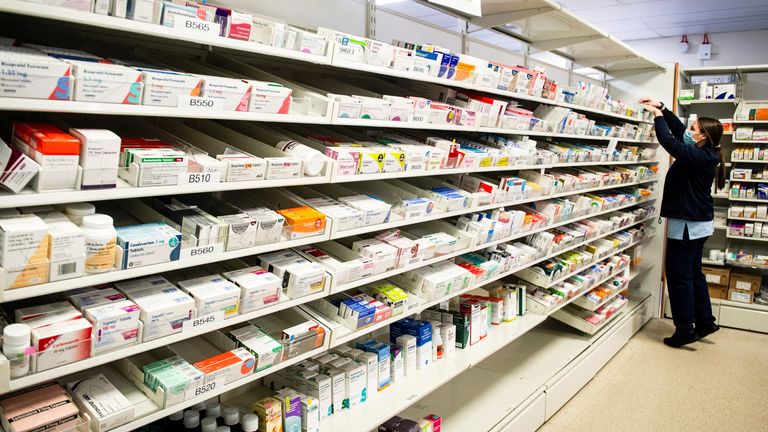Pharmacy closures are having a “huge impact” on those who need them as figures show more than 430 permanently shut their doors last year, the nation’s patient champion has warned.
Healthwatch England, a committee of the Care Quality Commission, added that older people and those in rural areas are worse affected by the widespread closures.
It has issued the warning as pharmacy leaders say that “pharmacy deserts” around the country could put more pressure on GPs and leave patients having to travel further to access care.
New data obtained by Healthwatch, which gathers and champions the views of those who use health and social care services, warned that 436 pharmacies closed permanently in England between 1 January and 31 December 2023.
This is equivalent of eight pharmacies shutting their doors permanently every week.
Healthwatch also sounded the alarm over temporary closures of pharmacies – which can last hours or days.
It warned that temporary and permanent pharmacy closures are “undermining people’s access to care”.
Such closures were also eroding people’s confidence in the expansion of pharmacy services, according to a new Healthwatch report.
This could include the previous government’s flagship Pharmacy First service, which encourages people to seek care from a local pharmacist for several common ailments.
Patients have contacted Healthwatch to express their frustration over closures, with particular concerns raised about access to essential medicines.
Warnings about drugs shortages for pharmacies are ‘just the tip of the iceberg’
List of illnesses pharmacies will now be able to diagnose and treat
As a result it set out to investigate the extent of the problem by sending freedom of information requests to local health organisations, known as integrated care boards, across England.
Some 13,863 temporary closures were reported between 1 January and 31 December last year, according to a new Healthwatch briefing document.
Many temporary closures were driven by staff shortages, Healthwatch said, in particular the availability of locum pharmacists.
Analysis of the data suggests that temporary closures were more common in rural areas compared with urban areas.
North East and North Cumbria Integrated Care Board appeared to be worst affected by temporary closures, it found.
Healthwatch also found that areas with older populations were more likely to be affected by temporary pharmacy closures.
“These findings suggest that the group most likely to use pharmacy services, older people, may be least well served when it comes to accessing them,” according to the report authors.
Healthwatch England is calling for patients to be better notified about pharmacy closures and for pharmacy teams to be better supported to have contingency plans.
It has also called for a national evaluation to consider issues facing pharmacy services.
Debbie Riddell, from Paignton in Devon, said she has faced difficulty when trying to collect prescriptions for thyroid and blood pressure issues.
The 70-year-old said: “Many of the pharmacies in my area have closed down. My local one is still open, but staff are overwhelmed with the demand.
“I was shocked by what I saw on my recent visit to pick up my medication, I had to queue out the front door and wait for at least 20 minutes to be attended to.
“There’s even a notice at the door that because of closures in the area, it will now take at least 10 days to prepare a repeat prescription.”
Read more:
Terrified families flee their homes in Lebanon
Dozens evacuated from flooded holiday park
‘Mini-moon’ about to enter Earth’s orbit
Louise Ansari, chief executive at Healthwatch England, said: “Our research has shown that temporary pharmacy closures present a widespread challenge in England.
“This issue is having huge impacts on older people and is particularly acute in rural regions where people already have to travel further to visit their pharmacist.
“Staff shortages, the key driver of permanent and temporary closures, call into doubt the potential of Pharmacy First, meaning people can’t get the advice, care and medications they need and when they need them.”
Commenting on the report, Paul Rees, chief executive of the National Pharmacy Association, said: “Community pharmacies act as the front door to the NHS.
“If people lose access to them, it will force more patients into the 8 o’clock scramble at their GP surgery, putting pressure on the rest of our NHS system.
“1.6 million people a day visit their pharmacy but they are closing at a record rate, and millions of people are seeing the effect of that in their communities.”
#Pharmacy #closures #huge #impact #shut #doors #year #patient #champion #warns #News






